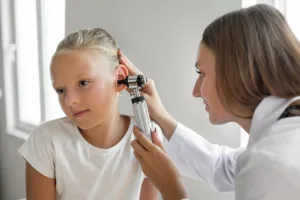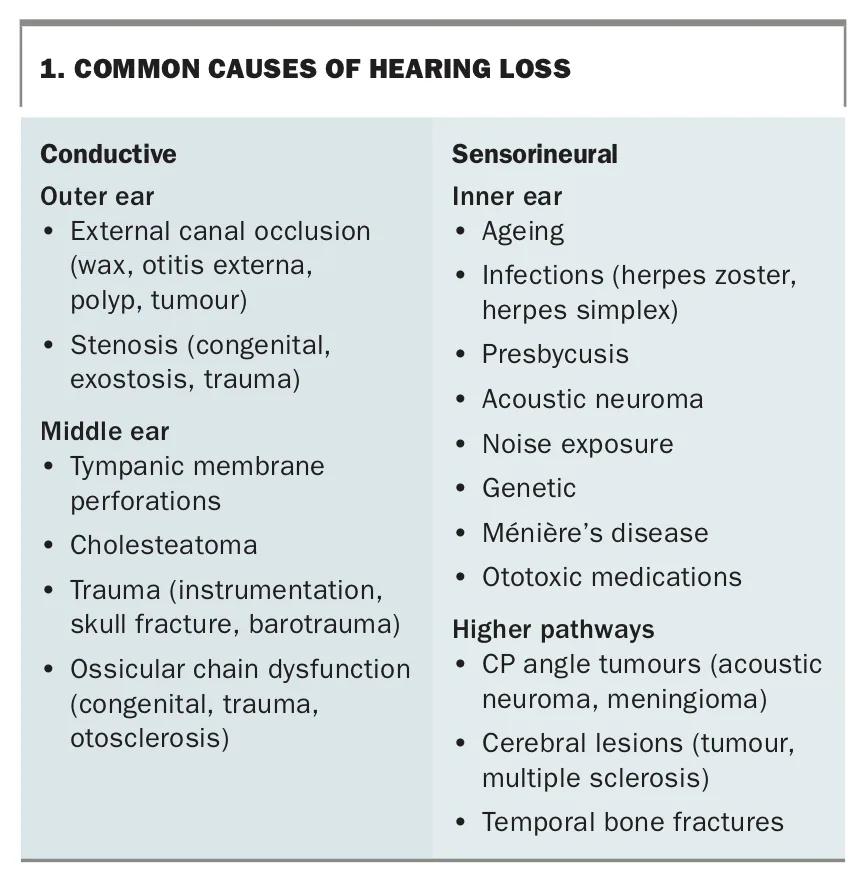Introduction:
High-frequency hearing loss treatment is a common condition that can impact one’s ability to hear sounds in the higher frequency range, affecting speech comprehension and environmental awareness. Treatment options, including hearing aids and cochlear implants, aim to improve hearing and quality of life. Understanding the symptoms and treatment of high frequency hearing loss is crucial for effective management of the condition.
High-frequency hearing loss, often referred to as high-pitch hearing loss, is a common condition that can significantly impact one’s ability to communicate and engage with their surroundings. This type of hearing loss typically affects the ability to hear sounds in the higher frequency range, which can make it difficult to understand speech and enjoy music. Fortunately, there are several High Frequency Hearing loss treatment options available to help manage high frequency hearing loss and improve quality of life.
Understanding High-Frequency Hearing Loss:
frequency hearing loss is characterized by difficulty hearing sounds in the higher frequency range, typically above 2,000 Hz. This can make it challenging to understand consonant sounds, which are crucial for clear speech comprehension. Individuals with high frequency hearing loss may find it difficult to follow conversations, especially in noisy environments, and may also struggle to enjoy music or hear certain environmental sounds.
High-Frequency Hearing Loss Treatment:
1. Hearing Aids:
Hearing aids are the most common treatment for high frequency hearing loss. These devices are designed to amplify sounds in the higher frequency range, making them more audible to individuals with hearing loss. Modern hearing aids come in various styles and designs, including behind-the-ear (Btw), in-the-ear (ITE), and completely-in-the-canal (CIC), offering options to suit different preferences and degrees of hearing loss.
2. Frequency Lowering Technology:
Some advanced hearing aids are equipped with frequency-lowering technology, which works by lowering the frequency of high-pitched sounds to a range that is more audible to the individual. This can help improve speech understanding and overall sound quality for those with high-frequency hearing loss.
3. Cochlear Implants:
For individuals with severe to profound high frequency hearing loss, cochlear implants may be a suitable treatment option. Cochlear implants are surgically implanted devices that bypass the damaged part of the inner ear and directly stimulate the auditory nerve, providing a sense of sound to the brain.
4. Assistive Listening Devices (aids):
AiDs are devices designed to improve hearing in specific listening situations, such as watching TV or talking on the phone. These devices work in conjunction with hearing aids to enhance sound clarity and reduce background noise, making it easier to hear in challenging environments.
5. Auditory Training:
Auditory training programs can help individuals with high frequency hearing loss improve their ability to understand speech and other sounds. These programs typically involve listening exercises and strategies to help improve auditory processing skills.
6. Lifestyle and Environmental Modifications:
Making modifications to your environment, such as using visual cues or reducing background no inside, can help improve communication for individuals with high frequency hearing loss.
Additionally, lifestyle changes, such as avoiding loud noise exposure and maintaining overall ear health, can help preserve hearing function.
Considerations

When considering treatment options for high frequency hearing loss, it’s essential to consult with a hearing healthcare professional to determine the most appropriate solution for your specific needs.
Factors such as the severity of your hearing loss, lifestyle preferences, and budget will all play a role in determining the best course of action.
While high frequency hearing loss can be challenging, advancements in hearing technology have made it possible for individuals with this condition to effectively manage their hearing loss and improve their quality of life.
By exploring the various treatment options available and working closely with a hearing healthcare professional, individuals with high frequency hearing loss can regain their ability to hear and engage with the world around them.
It seems like you’re asking about the symptoms that may arise during the treatment of high frequency hearing loss. Generally, treatment itself doesn’t cause symptoms; however, there are some aspects of treatment that can lead to certain experiences.
Here are a few possible scenarios:
1. Adjustment Period:
When first using hearing aids or cochlear implants, some people may experience an adjustment period where sounds may seem different or overly loud. This typically resolves as the brain adjusts to the new way of hearing.
2. Discomfort:
In rare cases, wearing hearing aids for long periods may cause discomfort, such as soreness in the ears. It’s essential to ensure that the hearing aids fit properly and are comfortable to wear.
3. Feedback:
Hearing aids may produce feedback or whistling sounds, especially if they are not fitted correctly or if there is a buildup of earwax. Regular maintenance and proper fitting can help reduce this issue.
4. Learning Curve:
Some individuals may find it challenging to adapt to new auditory experiences, especially if they have been living with untreated high frequency hearing loss for a long time. Auditory training and counseling can help manage this aspect of treatment.
5. Battery Management:
For individuals using hearing aids, managing battery life and changing batteries regularly can be a part of the treatment process. Rechargeable hearing aids can alleviate this concern for some individuals.
6. Maintenance and Care:
Proper maintenance of hearing aids or cochlear implants is essential for optimal performance. Cleaning and servicing devices regularly can help prevent issues and ensure they continue to function effectively.It’s important to communicate any concerns or symptoms with your audiologist or hearing healthcare professional.
They can provide guidance and support to help you navigate the treatment process and ensure that you are getting the most benefit from your hearing devices.
Causes of High-Frequency Hearing Loss:

1. Aging:
Age-related hearing loss, known as presbycusis, commonly affects the higher frequencies first, gradually progressing to lower frequencies over time.
2. Noise Exposure:
Prolonged exposure to loud noises, either in the workplace or through recreational activities, can damage the hair cells in the inner ear, leading to high frequency hearing loss.
3. Genetics:
Genetic factors can predispose individuals to high frequency hearing loss. Some genetic conditions, such as otosclerosis or Minors disease, can also contribute to this type of hearing loss.
4. Medical Conditions:
Certain medical conditions, such as diabetes, hypertension, and cardiovascular disease, can impact blood flow to the inner ear, affecting hearing function, including in the higher frequencies.
5. Medications:
Some medications, known as ototoxic drugs, can damage the inner ear and lead to high frequency hearing loss. These include certain antibiotics, chemotherapy drugs, and some over-the-counter medications.
6. Trauma:
Head injuries or trauma to the ear can cause damage to the structures of the inner ear, leading to high frequency hearing loss.
7. Infections:
Severe or untreated ear infections can damage the structures of the middle and inner ear, leading to hearing loss, including in the higher frequencies.
8. Earwax Buildup:
Blockage of the ear canal due to excessive earwax can interfere with sound conduction, leading to temporary high frequency hearing loss.
9. Smoking:
Smoking has been linked to an increased risk of hearing loss, including high frequency hearing loss, due to its impact on blood flow and oxygen levels in the inner ear.
10. Other Factors:
Factors such as poor nutrition, chronic stress, and certain autoimmune diseases may also contribute to high frequency hearing loss. Understanding the underlying causes of high frequency hearing loss is important for proper diagnosis and management. Individuals experiencing symptoms of hearing loss should seek evaluation by a hearing healthcare professional for appropriate treatment options.
conclusion,
high frequency hearing loss can be caused by a variety of factors, including aging, noise exposure, genetics, and medical conditions. Early detection and treatment are key to managing this condition and preserving hearing function. By understanding the causes of high frequency hearing loss, individuals can take proactive steps to protect their hearing and seek appropriate treatment when needed.
[/et_pb_text][/et_pb_column][/et_pb_row][/et_pb_sectio]
Boost Your Eye Health: 5 Effective Eye Yoga Exercises for Better Vision.





